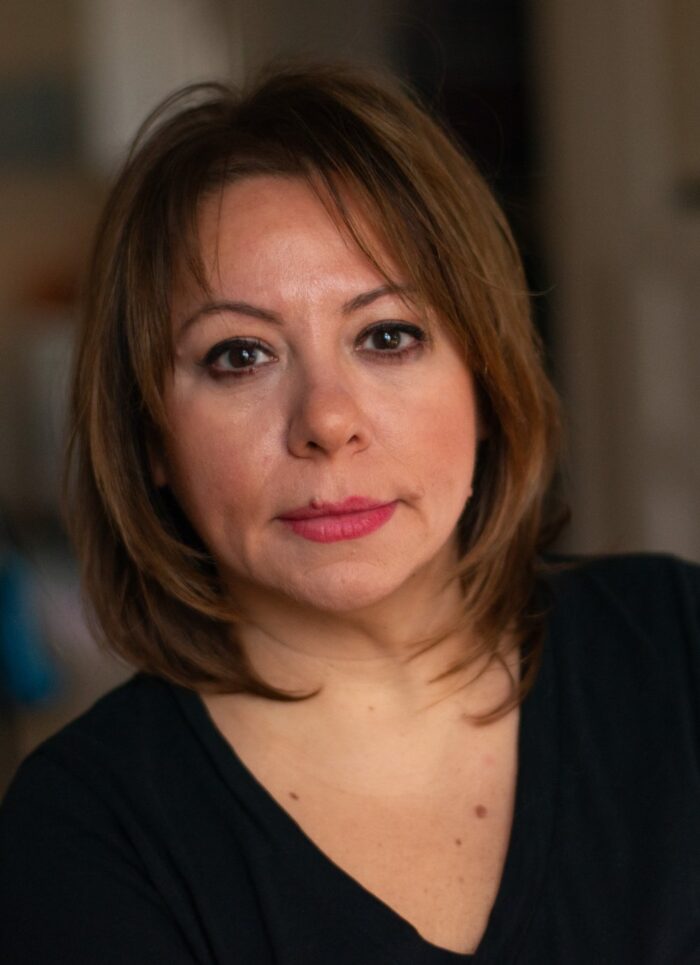Istanbul-born screenwriter-director Aslı Özge knew early on as a teenager that she wanted to be a filmmaker. After first studying communications, she eventually graduated in 1999 from the Film and Television Academy of the University of Marmara in Istanbul. In 2000, she moved to Berlin, where she studied philosophy and co-founded her own production company with fellow filmmaker Emre Erkmen. In her films, Özge has dealt with societal mechanisms in both her country of origin as well as her new home country. Her first feature-length directorial work was Ein bisschen April (2003), a small-budget made-for-TV film commissioned by the German broadcaster ZDF and shot in only ten days. From her very first film, Özge employed a method intended to elicit the most authentic possible performance out of her cast: the actors were not given a chance to familiarize themselves with the whole script, knowing only their own character and lines, but not those of their co-stars.
The award-winning Men on the Bridge (2009), which has been screened at dozens of film festivals, is a shrewd portrayal of Turkish society told through the stories of three men whose paths cross on the Bosphorus Bridge. The performances of the amateur actors playing the flower salesman, the shared taxi driver, and the traffic officer serve to reinforce the documentary feel of the film. Lifelong (2013) is a skilled exploration of a married couple whose passionless life is hidden behind a middle-class façade.
Having lived in Germany for 15 years, Özge felt she was ready to take on the topic of German society, and she gained the favor of both audiences and critics with her dark psychological thriller All of a Sudden (2016). The story of an upstanding small-town family’s social downfall shows how flexible the concepts of honesty and loyalty can be. In 2019, Özge directed a German-Belgian co-production in the form of a six-part crime series, and in 2023 she completed Black Box, whose Belgian co-producers were Jean-Pierre and Luc Dardenne (who attended our festival in 2005). The film is an ensemble drama about the residents of a German city block, who find themselves in exceptional circumstances as the police shut down the block, blocking both entry and exit. Nobody knows what’s going on as hearsay spreads, and fear, suspicion, and hostility begin to take hold. Together, the residents of the block form a kind of miniature society that acts as a window into the mechanisms of power. Özge had already finished writing the script when the pandemic began, and says she had no idea that the dystopia she was writing about would soon become a reality through COVID-19.
Özge’s latest film, Faruk, premiered in the Panorama section of this year’s Berlinale, where it also won the prize of the FIPRESCI jury. Combining elements of documentary and fiction, the film depicts the life of Özge’s elderly father in Istanbul and the inexorable transformation of the city due to gentrification. In Özge’s films, the location — be it a bridge, a city block, or a whole city — often emerges as a character in and of itself. This also holds true for Faruk, in which the city of Istanbul and the protagonist’s life are tightly interconnected.
In a short period of time, Özge has emerged as a new and influential voice in German cinema, but she also continues to depict her country of origin with a keen eye. Often, the characters in her films, too, reside in a liminal space, in the intersection between the old and the new.
Kaisu Isto
